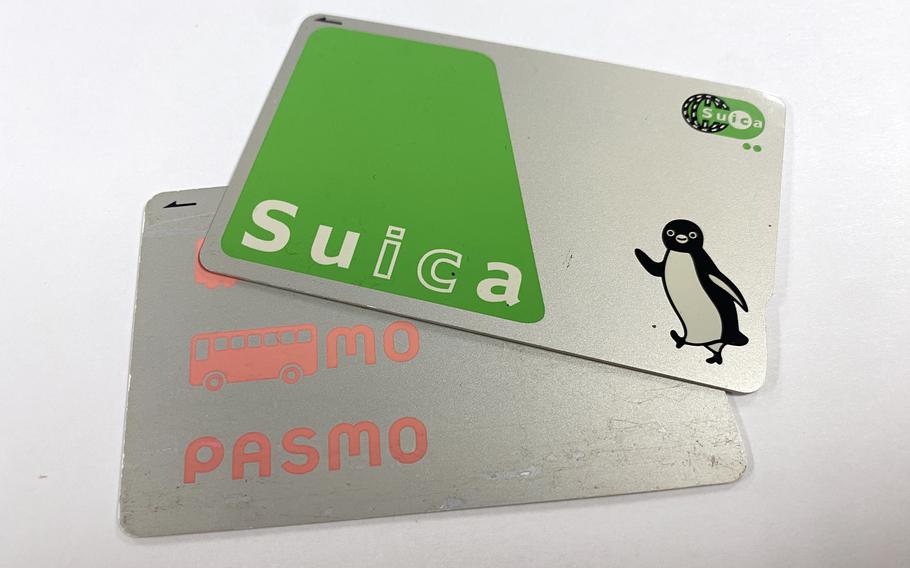
Suica and Pasmo cards make Japanese train travel seamless. Users simply tap in and out at station turnstiles, with fares automatically deducted from their balance. (Seth Robson/Stars and Stripes)
TOKYO — U.S. troops and other commuters in Japan will soon be able to purchase unregistered Suica and Pasmo smart cards again, following a nearly two-year pause due to a global semiconductor shortage.
East Japan Railway Co., or JR East, announced Tuesday that it will resume the sales on March 1. The rechargeable cards, widely used for train and bus fares, also work for vending machines, convenience stores, and other cashless purchases.
The cards were pulled from sale in summer 2023 as supply chain disruptions left manufacturers struggling to produce enough of the chips embedded in them.
Registered versions, which require users to provide personal information, were reintroduced in the fall, but many travelers prefer the convenience of unregistered cards.
Suica and Pasmo cards make train travel seamless — users simply tap in and out at station turnstiles, with fares automatically deducted from their balance. Cards can be reloaded with cash or credit cards at ticket machines in most stations.
“It’s a lot easier than handling cash,” Allan Berg, a University of Maryland business professor who lectures at Yokota Air Base in western Tokyo, said Friday at the base food court. “People working in stores really like it when you use your Suica, because it’s so easy.”
While physical card sales were halted, virtual Suica and Pasmo cards remained available through their respective mobile apps, which are only in Japanese. However, users with non-Japanese credit cards are unable to reload their virtual cards, making them impractical for many foreign residents and tourists.